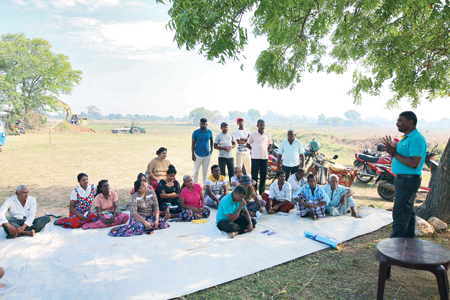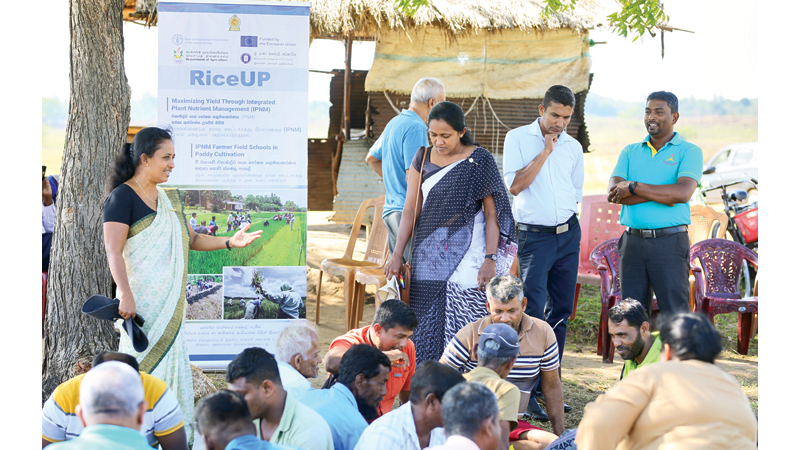The Food and Agriculture Organization of the United Nations (FAO) together with the Department of Agriculture and the Mahaweli Authority with funding from the European Union (EU) recently launched a Farmer Field Schools program to train 6,000 smallholder paddy farmers across four key rice-growing districts on sustainable approaches to paddy cultivation.
The 6,000 farmers from Ampara, Badulla, Hambantota and Polonnaruwa districts will be trained by Agriculture Extension Officers on applying the Integrated Plant Nutrient Management (IPNM) approach in their paddy cultivation to promote the efficient use of fertiliser, water and other inputs.
 By adopting IPNM and more efficient use of chemical fertiliser, smallholder paddy farmers can reduce costs and improve productivity, leading to better profitability and resilience to future shocks. Many paddy farmers in Sri Lanka rely on traditional cultivation methods, often exceeding the recommended amounts of fertiliser provided by the Department of Agriculture without a full understanding of the soil nutrient requirements of their fields.
By adopting IPNM and more efficient use of chemical fertiliser, smallholder paddy farmers can reduce costs and improve productivity, leading to better profitability and resilience to future shocks. Many paddy farmers in Sri Lanka rely on traditional cultivation methods, often exceeding the recommended amounts of fertiliser provided by the Department of Agriculture without a full understanding of the soil nutrient requirements of their fields.
The Farmer Field School program will facilitate soil testing and efficient fertiliser use through IPNM practices, emphasizing soil management, compost and biochar production. The program will also focus on implementing good agronomic practices including using high-quality seeds, proper land preparation, the parachute method for seed broadcasting, efficient water management and effective weed, pest, and disease management, all integral components of IPNM practices.
The programs are being implemented through the project titled ‘RiceUP’, an innovative project launched by FAO together with the government with €4 million in funding from the EU to tackle the vulnerability of the food security system in Sri Lanka. The project aims to respond to the economic crisis in Sri Lanka by protecting smallholder farmer livelihoods through the safe and efficient use of fertiliser along with boosting the production of quality paddy seeds for better productivity in paddy farming.
The launch of the Farmer Field Schools comes after 289 Agriculture Extension Officers were trained with skills and knowledge to guide 6,000 paddy farmers on IPNM practices to enhance yields while reducing dependency on chemical fertiliser. The Agriculture Extension Officers will act as facilitators and work with the selected farmers to adapt appropriate exercises relevant to their local conditions.









